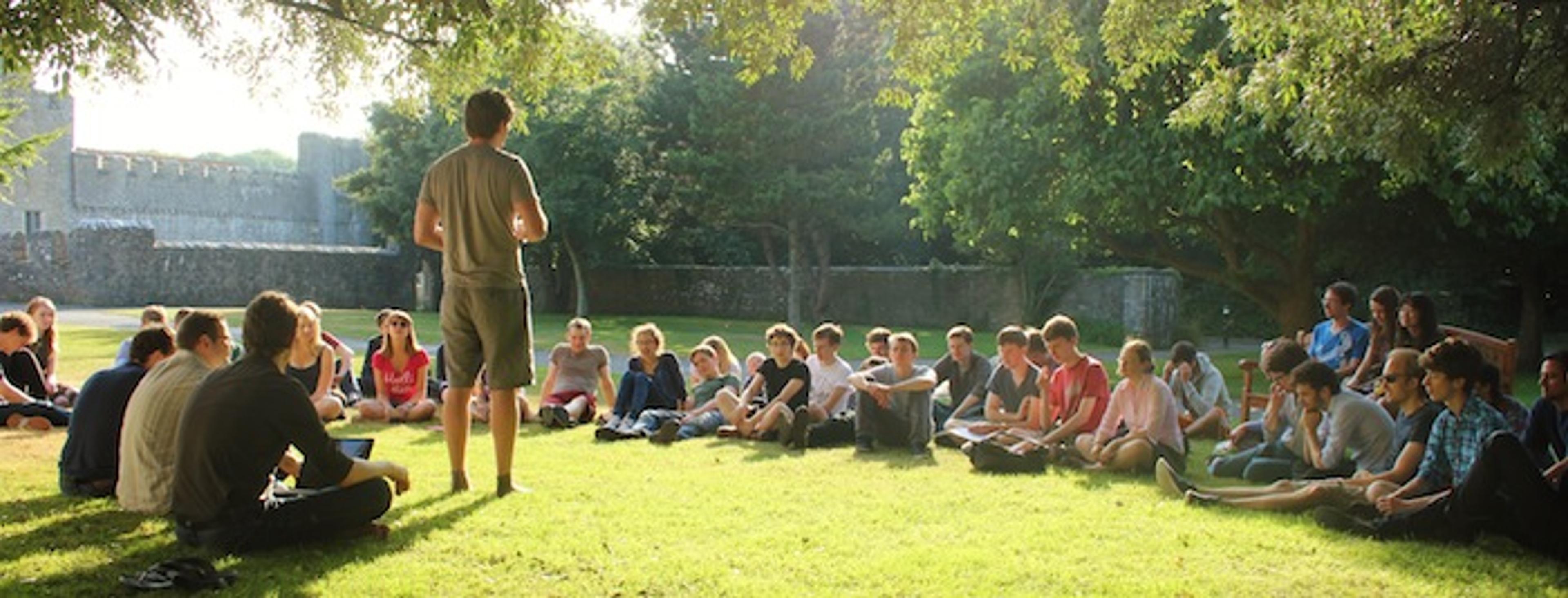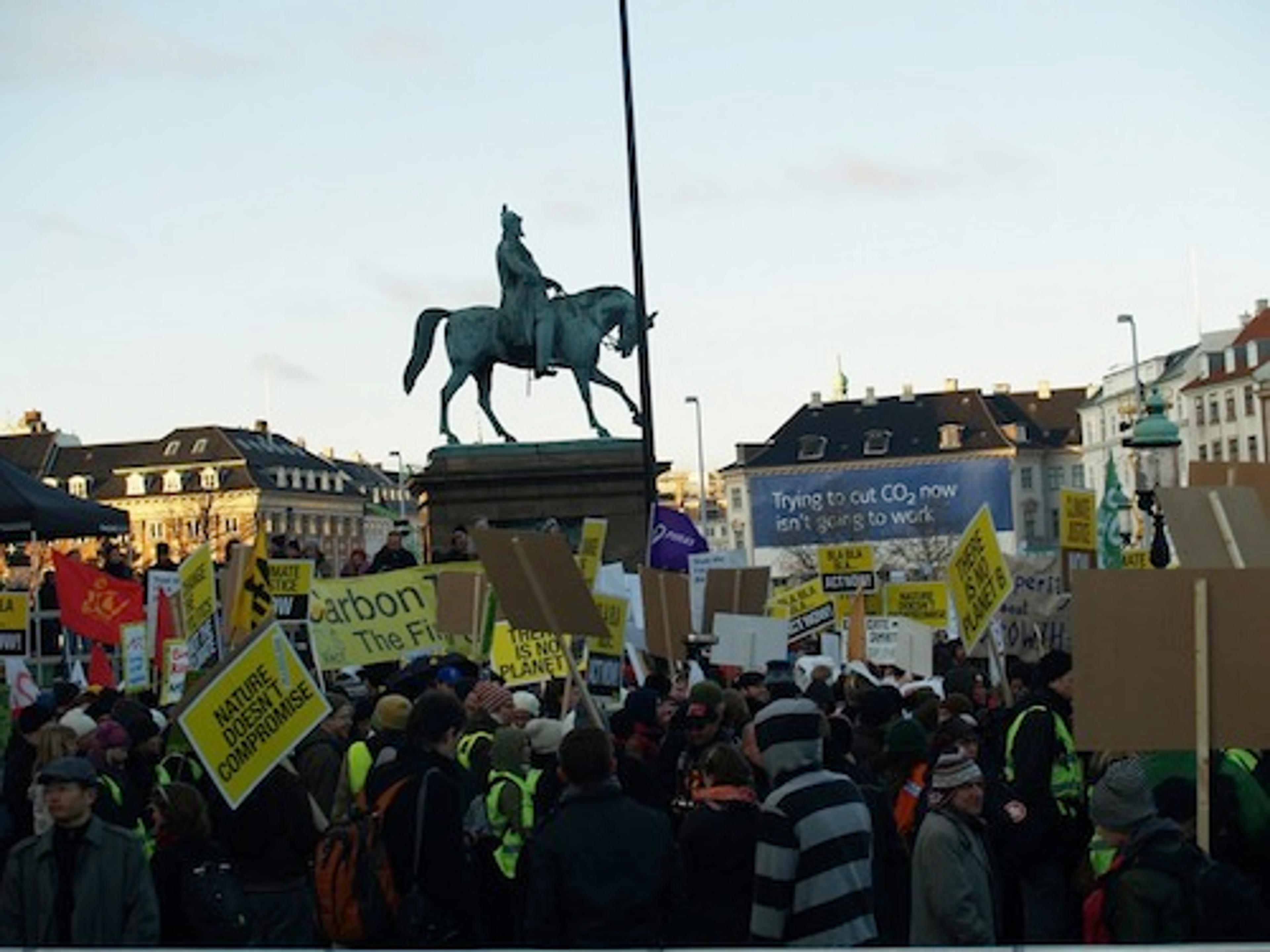Giving What We Can aims for a world without extreme poverty. To get there, it encourages people to pledge at least 10% of their income to the organizations which can most effectively help people in developing countries. But once you’ve taken the pledge, what else can you do? Here are eight ideas to consider: some may not be as rigorously evidenced as donating to our list of recommended charities, but there’s still potential for having impact in reducing global poverty.
- Organize a fundraising campaign
This also involves donating, but, while the money you give through the pledge comes from your income, you raise funds by getting others to donate. Organising an event or completing a challenge are great means to inspire donations and raise awareness. A quick glance over the Against Malaria Foundation fundraising pages - one of Giving What We Can’s recommended charities - leads you to ukulele festivals, house music records, and fancy dress swims all in aid of delivering mosquito nets to those who need them. The only limit is your imagination.
- Replace gifts with donations
Asking for donations to an effective charity as a birthday or Christmas present, or conversely donating instead of giving a gift are both engaging ways to contribute beyond the pledge. The Against Malaria Foundation even has a special page to help you.
- Spread the word
The Schistosomiasis Control Initiative puts it like this: “It costs just 50 pence per year to treat a child against debilitating NTDs [Neglected Tropical Diseases]. That means if you can convince ten people to donate just £50 each, your donation will pay for the annual treatment of an entire school.” It is obvious, but the impact of your commitment to Giving What We Can is ten times greater if you persuade ten people to join you in taking the pledge. As we have discussed in earlier blog posts, giving as part of a community also motivates people to donate more, so the wider we can spread the message, the better. You could combine points 1 and 3 by starting a loose change campaign at your place of work in aid of a highly effective charity. Jeff Sachs, of the Earth Institute at Columbia University, even recommends organizing a dinner party to get people informed about global poverty!
- Start a Giving What We Can chapter
If you are convinced by Giving What We Can’s approach, why not join your local chapter or even start a local chapter of Giving What We Can? Being part of a community of like-minded people allows you to engage more deeply with the problem of global poverty, and also to reach out to more people by creating a social scene around effective altruism. If you’re interested, you can find out more here.

- Volunteer
Many charities rely heavily on volunteers, and highly effective charities are often no different. The Against Malaria Foundation posts volunteer vacancies on this page, for example. Giving What We Can itself advertises graduate volunteer positions as it seeks to expand its operations and influence.
Otherwise, contact any other charity or charities that you believe can best contribute to eliminating suffering in the developing world. You may find them grateful for your help, especially if you have particularly relevant skills (e.g. web design, accounting, etc).
- Maximize the social impact of your career
Volunteering allows you to maximise the social impact of the hours you have spare outside of work each week; but you can achieve far more if you turn this on its head and instead orient your career choices to make the greatest positive difference to the world. This is a complex and growing area of interest, with organisations such as 80 000 Hours working specifically to offer evidence-based advice for those seeking to contribute to solving the world’s most pressing problems.
- Join a campaigning network
Some charities aim to eliminate suffering in the developing world directly, through medical aid for example. Others do so indirectly at a higher level, by campaigning for fairer trade, more foreign aid or tax justice. This has potential for creating meaningful change. A recent report by the ONE campaign found that the money currently lost from the world’s poorest countries via illicit financial flows could, if invested in health systems, help avert 3.6 million deaths per year between 2015 and 2025 in low-income countries. Collective action by governments to eliminate financial secrecy could therefore have huge benefits in terms of reducing poverty. Advocacy organisations working on such issues - for example, ONE, OxfamRESULTS - rely on the active support of citizens through petitions, letter-writing, or demonstrations. This is where you can help.

Putting pressure on your government to alter its policies through collective action can have a large impact. Credit: Oxfam International
- Write a letter to your political representative
The traditional method of writing to your elected representative is another way of directly persuading those in power to prioritise policies which benefit the world’s poor. This might take the form of encouraging your government to meet its commitment to give a certain percentage of GDP in foreign aid, or to increase that percentage. Jeff Sachs, of the Earth Institute at Columbia University, offers a template you might use.
Meanwhile, some organisations, such as The Center for Global Development, focus on “how policies and actions of the rich and powerful affect poor people in the developing world,” and come up with evidence-based policy recommendations. If you are particularly convinced by one of their suggestions, this could also form the basis of a letter to your political representative. And even better than individually writing a letter would be to organize a letter-writing campaign, amplifying your voice by reaching out through personal networks. Alternatively, you could join an existing network (see point 6)!
So there you are: eight suggestions for how to further the cause of Giving What We Can beyond the pledge. Encouraging people to take the pledge to donate at least 10% of their income to the best charities remains Giving What We Can’s core strategy, but this is not to say that we can’t effectively contribute to the eradication of global poverty through other means, particularly through influencing government policy to attack problems like climate change ‘upstream’ (see points 6 and 7). Inevitably, this list barely scratches the surface of the possibilities for effective altruism out there - we look forward to seeing new ways of spreading important ideas and contributing to the end of extreme poverty!